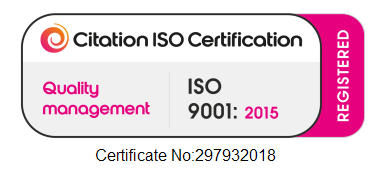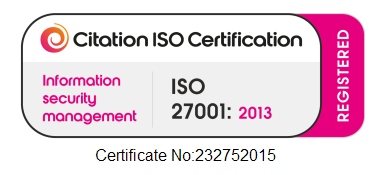
11 Sep 2024
How September 11th Affected The Global Healthcare System
The 9/11 attacks on the World Trade Center in New York City marked a tragic day in history, with its effects extending far beyond the immediate loss of life and property, into the long-term health consequences for those directly exposed to the aftermath and for healthcare systems worldwide.
The impact has influenced global health policies, practices and awareness around issues such as asbestos exposure, mental health and emergency preparedness, and in this blog, we explore the ripple effects the 9/11 events have had on healthcare globally, with a focus on the resulting health conditions such as mesothelioma and broader implications for healthcare.
The asbestos legacy: a global concern
During the construction of New York’s World Trade Center, asbestos was widely used for its fireproofing properties, with an estimated 2,000 tons of asbestos-containing materials incorporated into the buildings. Although asbestos use was banned in New York by the early 1970s, the harmful fibres had already been sprayed on about 40 floors of the North Tower, and when the Twin Towers collapsed, they released a toxic dust cloud containing asbestos fibres amongst other hazardous substances into the air.
The Environmental Protection Agency (EPA) initially tested the air quality following the attacks and reported that over one-third of the samples collected contained asbestos levels above the safe limit, however, just days later, the EPA controversially declared Manhattan's air as ‘safe to breathe,’ which was a claim that was later retracted.
This misinformation led to widespread exposure, with an estimated 400,000 people potentially inhaling asbestos fibres and other toxins, and the global healthcare community watched closely as the long-term effects of this exposure became evident, raising awareness of the dangers of asbestos on a worldwide scale.
The health fallout: mesothelioma and other illnesses
One of the most devastating health outcomes from 9/11 has been the rise in mesothelioma cases.
Mesothelioma is a rare and aggressive form of cancer caused exclusively by asbestos exposure. It can take 10 to 50 years for symptoms to develop, meaning the full impact of 9/11-related asbestos exposure is only now beginning to emerge, with the first case of 9/11-related pleural mesothelioma having been reported in 2019, nearly two decades after the attacks, with the number of such cases is expected to rise significantly as time goes on.
Globally, the 9/11 tragedy has drawn attention to the dangers of asbestos, leading to stricter regulations and bans in many countries, however, asbestos remains legal in some parts of the world, and its use in older buildings continues to pose a significant health risk.
Here, the lessons learned from 9/11 have spurred international advocacy for asbestos-related disease awareness and prevention, highlighting the importance of early diagnosis and treatment.
Yet, beyond mesothelioma, the toxic dust cloud also led to a rise in other health issues including various types of cancer, chronic respiratory conditions and cardiovascular diseases.
From this increase, studies have shown that first responders and others who were present at Ground Zero face significantly higher risks of conditions such as leukemia, thyroid cancer and pulmonary fibrosis - findings which have prompted global healthcare systems to improve their surveillance and response to environmental health hazards.
Mental health: the silent epidemic
The psychological impact of 9/11 was immense, with many survivors, first responders and New York City residents suffering from post-traumatic stress disorder (PTSD), depression and anxiety.
The scale of the trauma experienced by those exposed to the attacks brought mental health into the spotlight, not just in the United States, but around the world, with global mental health policies being increasingly recognised the need for comprehensive mental health support in the aftermath of disasters.
From this, the 9/11 attacks demonstrated that the mental health effects of such events can be as debilitating as physical injuries, if not more so, and in the years since, there has been a growing emphasis on providing psychological first aid and long-term mental health care following traumatic incidents - a practice now adopted by many countries.
The global influence of the 9/11 Victim Compensation Fund
The US government's response to the health impacts of 9/11 included the establishment of the September 11th Victim Compensation Fund (VCF) and the World Trade Center Health Program (WTCHP) - initiatives which have provided critical support to thousands of individuals suffering from 9/11-related health conditions.
The VCF in particular has become a model for disaster-related compensation funds worldwide, demonstrating the importance of providing financial support to victims of large-scale incidents, and by 2023, the VCF had awarded over $12.7 billion to victims and their families.
This program has influenced other nations to consider similar compensation schemes for victims of industrial disasters, terrorist attacks and other large-scale emergencies too, and the global healthcare community has observed the VCF’s success in addressing the long-term health needs of affected populations, reinforcing the importance of such funds in managing the aftermath of disasters.
The global impact on healthcare systems and policy
The 9/11 attacks highlighted the critical need for robust emergency preparedness and response mechanisms within healthcare systems worldwide, and in the wake of the attacks, there was an increased focus on improving disaster response protocols, including better coordination between healthcare providers, government agencies and emergency services.
Globally, the lessons from 9/11 have led to the development of more comprehensive disaster preparedness plans, and today, these plans typically include provisions for dealing with the long-term health impacts of such events, including both physical and mental health considerations.
The attacks also underscored the importance of having accurate and transparent communication from health authorities in the aftermath of a disaster, as misinformation can lead to further harm, and also shed light on the importance of how global healthcare systems can take lead from the US on their victim support networks too.
September 11th: a lasting legacy
The healthcare effects of 9/11 continue to unfold, with thousands of people still grappling with the physical and psychological consequences of that day.
As we move forward, the lessons learned from 9/11 must continue to inform global healthcare practices, particularly in the areas of environmental health, mental health and disaster preparedness, and by addressing the ongoing challenges posed by 9/11-related illnesses and advocating for better prevention and care, the global healthcare community can honour the memory of those lost and ensure that the tragedy of 9/11 leads to positive changes in healthcare worldwide.
Lifelong support from Speed Medical
As we reach the anniversary of the September 11th events, it’s important for us here at Speed Medical to reaffirm our commitment in supporting victims and working towards a healthcare system that prioritises patient safety above all else.
By raising awareness, advocating for change and offering unwavering support to those in need, we can create a future where no one has to endure the devastating consequences of medical errors, injury and life-changing illnesses. Together, we can strive for a world where every individual receives the care and respect they deserve, free from the shadow of clinical negligence.
Speed Medical can help from start to finish at any point in a claims journey, and you can rely on us to be your medical assessment, medical treatment and medical report provider.






